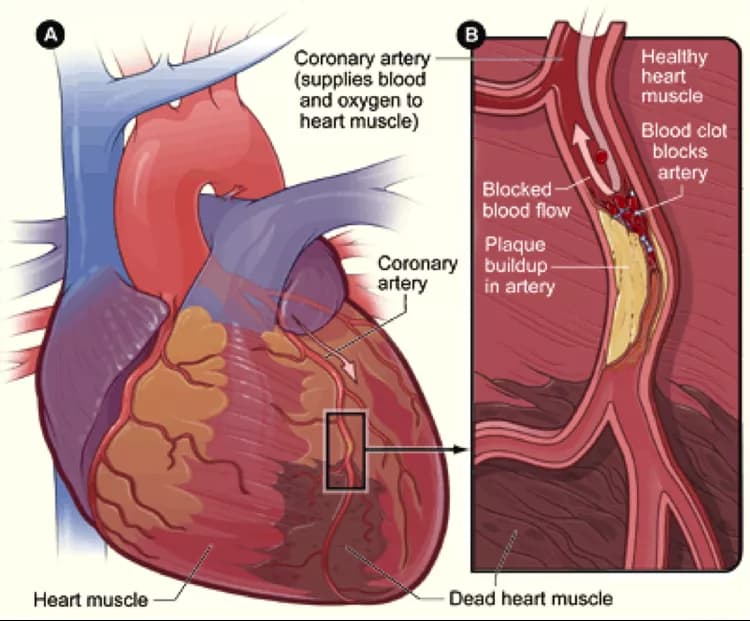
Beta Blockers Not Needed After Heart Attack If Other Medications Taken
A new study from the University of North Carolina at Chapel Hill finds beta blockers are not needed after a heart attack if heart-attack survivors are taking ACE inhibitors and statins. The study is the first to challenge the current clinical guideline that heart-attack survivors should take all three drugs -- beta blockers, ACE inhibitors and statins -- for the rest of their lives.
Heart-attack survivors are usually prescribed all three drugs to help prevent a second attack and death. However, the beta blockers offer no additional benefit for patients who take the other two drugs as prescribed, according to the new study, which examined the trade-offs and consequences of using some of the medicines instead of others. The findings were published in the Journal of the American College of Cardiology.
Researchers looked at more than 90,000 Medicare patients age 65 or older who had suffered a heart attack and were prescribed a beta blocker, ACE inhibitor or angiotensin receptor blocker and statin as preventive therapies after they were discharged from the hospital. Patients who only took the ACE inhibitor or an angiotensin receptor blocker and statin, as prescribed, were no more likely to die than those who took all three drugs.
The research team from UNC-Chapel Hill, Monash University, the University of Iowa and the University of Eastern Finland was led by Gang Fang, an assistant professor at the UNC Eshelman School of Pharmacy and senior author of the study.
Fang stressed that patients should not stop taking beta blockers or any other prescription medicine without first consulting their physician. "We are not saying that beta blockers have no value. It's just that their benefits appear to have been eclipsed by the duo of ACE inhibitors and statins, which are relatively newer drugs," Fang said.
Beta blockers were introduced more than 50 years ago and reduce blood pressure and heart rate. ACE inhibitors and angiotensin receptor blockers also reduce blood pressure and they have been around approximately 40 years. Statins reduce the amount of cholesterol and other fats in the bloodstream and have been in use for more than 30 years. For heart-attack patients, these drugs provide additional support to the heart.
For six months Fang's team followed heart-attack survivors who filled prescriptions for all three drugs to study how well they adhered to their prescription drug regimen. Being adherent was defined as taking the medicines as prescribed at least 80 percent of the time. The team then followed the patients for up to 18 months to see how many died during that time. Six months after their heart attack about half the patients in the study had stopped taking at least one of their medications as prescribed, the researchers found.
For patients who took all three drugs as prescribed, the mortality rate at one year was 9.3 percent. For patients who adhered to ACE inhibitor or ARBs and statin prescriptions but not beta blockers, the mortality rate was 9.1 percent, a statistically insignificant difference. For patients not taking any of the medicines as prescribed, the mortality rate was 14.3 percent, a nearly 54 percent increase over adherent patients.
"The problem with this three-drug regimen is that it is difficult for people to take their medications as they are supposed to in the long term. This is especially true of older patients who are likely to already be taking many different drugs," Fang said.
Fang also noted that patients in the study who had diabetes, dementia or both were more likely to die when taking beta blockers as prescribed. Further research is warranted, he said, and physicians should exercise more caution in prescribing beta blockers for elderly heart-attack survivors with diabetes or dementia.
Materials provided by University of North Carolina at Chapel Hill. Note: Content may be edited for style and length.
Disclaimer: DoveMed is not responsible for the accuracy of the adapted version of news releases posted to DoveMed by contributing universities and institutions.
References:
Maarit J. Korhonen, Jennifer G. Robinson, Izabela E. Annis, Ryan P. Hickson, J. Simon Bell, Juha Hartikainen, Gang Fang. (2017). Adherence Tradeoff to Multiple Preventive Therapies and All-Cause Mortality After Acute Myocardial Infarction. Journal of the American College of Cardiology. DOI: 10.1016/j.jacc.2017.07.783
Related Articles
Test Your Knowledge
Asked by users
Related Centers
Related Specialties
Related Physicians
Related Procedures
Related Resources
Join DoveHubs
and connect with fellow professionals

0 Comments
Please log in to post a comment.